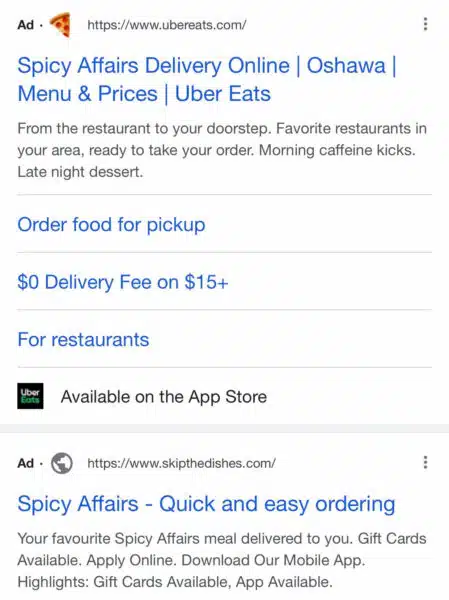Google tests favicons in text ads
Google has confirmed a small experiment that might help users more easily identify an advertiser — by including their favicon in the URL.
Google has confirmed that the company is running a small experiment that adds favicons beside the URL in text ads.
Darcy Burk, founder and CEO, Burk Digital Factory, wondered if what he was seeing was new. Here’s the screenshot he shared on Twitter of what he spotted on a Google search results page.

At first glance, it looks like a pizza emoji. Even though emojis are listed as “invalided or unsupported characters,” according to Google’s Advertising policy help doc, they have been spotted numerous times in ad URLs in recent years.
How did Uber Eats, an online food ordering and delivery platform, manage to get that pizza emoji in its Google Ad? Especially considering that the ad directly below has a generic favicon?
Well, now we know. Because Burk received a reply from Ginny Marvin, Google’s ads product liaison. And it isn’t an emoji — it’s a favicon.
Marvin confirmed what Burk tweeted about is part of a small, ongoing test for advertisers. According to Marvin:
“This is part of a series of small experiments to help users more easily identify the brand or advertiser associated with the Search ads they may see for a given query.”
@adsliaison
Why we care. As Marvin noted, this is an interesting use of a visual element to catch the eye of searchers. This is one to watch to see if it becomes available to more, or even all, Google Ads advertisers in the future.
Related stories